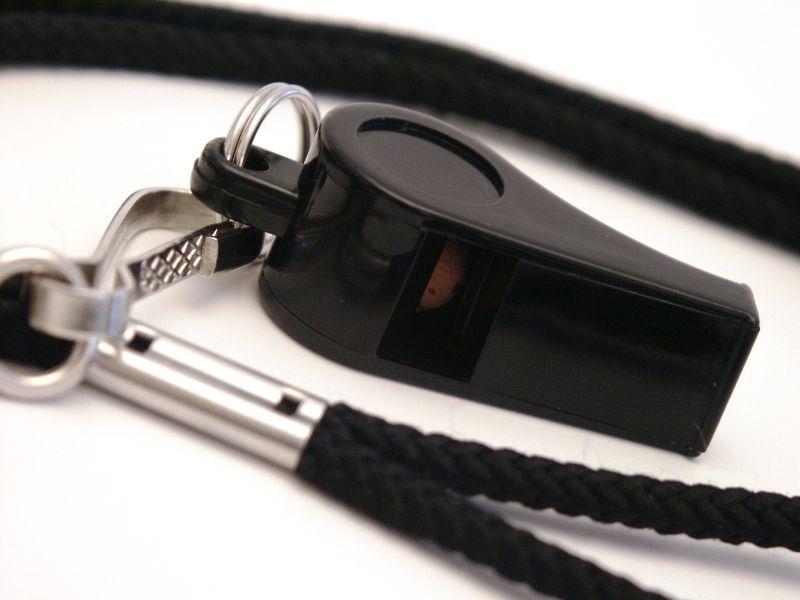The state of New York offers protections for individuals that come forward to report malfeasance, illegal labor practices, or workplace safety violations. Because New York is an at-will work state, an employee can be terminated for nearly any reason or without cause. But if your termination is retaliation for reporting an incident or ongoing activity that qualifies under the law, you may be entitled to compensation and possibly reinstatement.
What is Whistleblowing?
Whistleblowing occurs when a member of an organization reports wrongdoing or violations of the law to legal authorities. Employers are ultimately responsible for the safety and health of their employees. In certain instances, the employer behaves in a negligent manner. They are aware or should be aware of a situation and fail to do anything about it. It may create an adverse or unsafe environment for the employees. In other situations, the employer is willfully breaking the law. Depending on the type of incident and the behavior of the employer, it may make sense to bring the matter to their attention. There are other times, however, where this is impossible or ineffective. Employees who are aware of unsafe, unethical, or criminal practices, should be able to report it to the appropriate authorities without retaliation. State and federal whistleblower laws aim to protect whistleblowers from being demoted, dismissed, or otherwise penalized.
Federal Laws that Protect Whistleblowers
Federal law does protect individuals from some forms of whistleblowing. Whether or not an employee is covered under these laws usually depends on the type of activity that the employee has engaged in. The U.S. Department of Labor whistleblower laws protect whistleblowers who report violations of the following federal acts:
- Energy Reorganization Act of 1974, 42 U.S.C. 5851 Toxic Substances Control Act, 15 U.S.C. 2622
- Safe Drinking Water Act, 42 U.S.C. 300j-9(i)
- Water Pollution Control Act (WPCA, commonly called the Clear Water Act or CWA), 33 U.S.C. 1367
- Solid Waste Disposal Act (SWDA), 42 U.S.C. – 6971, also called the Resource Conservation and Recovery Act (RCRA)
- Clear Air Act (CAA), 42 U.S.C. – 7622
- Comprehensive Environmental Response, Compensation and Liability Act of 1980 (CERCLA or “Superfund Law”), 42 U.S.C. – 9610 (1988)
- Surface Transportation Act (STAA), 49 USC – 31105
- Mine Safety and Health Act (MSHA), 30 USC – 815(c)
- Wendell H. Ford Aviation Investment and Reform Act for the 21st Century (“AIR 21”), 49 U.S.C. – 42121
- Pipeline Safety Improvement of 2002 (PSIA), 49 U.S.C. 60129
- Sarbanes-Oxley Act of 2002 (Title VIII), 18 U.S.C. -1514A (“Sarbanes-Oxley” or SOX)
This is a very specific statutes list and many anonymous and public complaints fall outside of these types of violations. Like New York, most states have additional protections for whistleblowers in their respective jurisdictions.
New York State Whistleblower Laws
The state of New York has two primary laws that protect whistleblowers:
Labor Law Section 740 protects employees from any retaliatory personnel action against an employee because such employee discloses, or threatens to disclose to a supervisor or to a public body an activity, policy or practice of the employer that is in violation of law, rule or regulation which violation creates and presents a substantial and specific danger to the public health or safety; or provides information to, or testifies before, any public body conducting an investigation, hearing or inquiry into any such violation of a law, rule or regulation by such employer; or objects to, or refuses to participate in any such activity, policy or practice in violation of a law, rule or regulation.
Labor Law Section 741 protects employees from retaliatory action against any employee because the employee discloses or threatens to disclose to a supervisor, or to a public body an activity, policy or practice of the employer or agent that the employee, in good faith, reasonably believes constitutes improper quality of patient care; or objects to, or refuses to participate in any activity, policy or practice of the employer or agent that the employee, in good faith, reasonably believes constitutes improper quality of patient care.
Other Whistleblower Protections
There are other protections for whistleblowers that are specific to the situation. For instance, members of protected classes can file discrimination charges under Title VII of the Civil Rights Act of 1964. This act originally listed “race, color, religion, sex, and national origin” as protected classes, but court rulings have expanded. The U.S. Equal Employment Opportunity Commission (EEOC) lists the following categories:
- Race
- Color
- Religion
- Sex (This includes pregnancy, sexual orientation, and gender identity)
- National Origin
- Age (40 and older)
- Disability
- Genetic Information
Therefore if you are treated unfairly by your employer because you have reported race discrimination or any other violation of Title VII of the CRA you can once again file a complaint with the EEOC. Even when it turns out that the employer didn’t commit the alleged offense that became the subject matter of whistleblowing, you are still entitled to whistleblower protection unless you had no reasonable ground to believe that the employer broke the law.
What is Workplace Retaliation?
Workplace retaliation occurs when an employer or their agent takes adverse action against an employee in response to a complaint. Common examples of workplace retaliation include, but are not limited to:
- Termination from employment
- Demotion from the present position
- Lateral transfer to a less-desirable job
- Mandatory relocation
- Being passed for a promotion (particularly if the employee was already advised that they would be receiving one)
- Being passed over for a raise
- Payroll deduction
If you made a complaint against an employer and any of these things occurred as a result, you may have a wrongful termination case.
Proving Workplace Retaliation
As you can imagine, most employers are not going to admit that an action taken against an employee was workplace retaliation. When it comes to termination, employers are able to terminate employees in New York without cause, which means that most employers don’t provide one. They’re also not likely to provide a reason for transfers, denied promotions, or raises. That’s why it’s important to document any statements or irregularities that occur after the complaint is filed. Your attorney can use this documentation to demonstrate that the adverse action was retaliatory in nature.
What a NY Employment Lawyer Can Do For You
At Borrelli & Associates, PLLC, our attorneys recognize the precarious situation that you’re in as an employee and witness to illegal or unethical behavior. You have a moral obligation to report the violation and you shouldn’t be punished for it. As employment lawyers, there are a number of actions that we can take from writing a letter to the employer to litigation in the state or federal courts. We are also familiar with the various governmental entities that are designed to protect whistleblowers and we can file your complaint with them.
Whistleblower Protection Lawyers are experts in defending those employees who engage in the dangerous but extremely important act of whistleblowing; if you are a whistleblower and you fear reprisal from your superior or superiors, you’ll need the legal support and representation of Borrelli & Associates, P.L.L.C. as your first line of defense.
Frequently Asked Questions About Whistleblowing
As New York Employment Lawyers, we’ve heard and litigated many whistleblower complaints. Here are some of the more common questions we hear and the answers that we provide:
How do I know if I’ve been retaliated against?
There’s rarely a declaration of retaliation from an employer. Most cases have to be proven by the timing of the adverse action in relation to the original whistleblowing complaint. If you’re unsure whether you have a viable complaint, contact a New York employment attorney.
If I haven’t “blown the whistle” yet, can I still talk to an attorney?
While there’s no way to take action over a future event if you fear that a complaint you’re considering will trigger retaliation, you can, of course, schedule a complaint in advance.
Will hiring an attorney make my situation worse?
Labor attorneys in New York have a number of tools at their disposal that ensure that employers can’t take action against you for protecting your rights. If you are still working for a company where you’ve faced retaliation, we can help.
If I haven’t “blown the whistle” yet, can I still talk to an attorney?
While there’s no way to take action over a future event if you fear that a complaint you’re considering will trigger retaliation, you can, of course, schedule a consultation in advance. Sometimes, having an attorney guide you through the process or even lodge the complaint on your behalf to your employer is beneficial.
Borrelli & Associates, PLLC of New York
Borrelli & Associates, P.L.L.C. offers top whistleblower protection lawyers in New York City and Long Island. We have offices in Manhattan and Garden City for your convenience and serve Manhattan, Brooklyn, Queens, the Bronx, Staten Island, and both Nassau and Suffolk Counties.



















